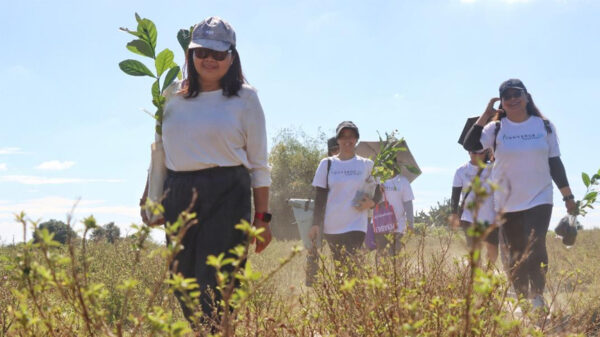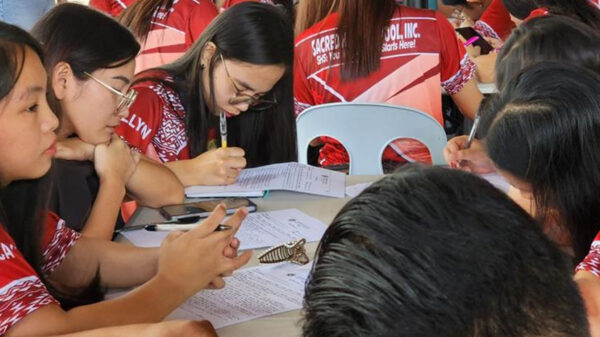Cisco Philippines, with the support of business partners Ardent, Azimuth, and volunteer rescue group Team Patola deployed the Cisco Konektado Strategic Emergency Response Vehicle (SERV) at the start of the year to Bohol and Cebu after these areas were devastated by Typhoon Odette. The Konektado SERV is Cisco’s communication solution designed especially for disaster response and mitigation. It is a van fully equipped with Cisco technology designed to establish connectivity even amidst power and signal outages to provide responders with a means to communicate with different teams on the ground. It is also capable of providing public WiFi so affected residents can reach out to their loved ones to assure them of their safety or ask for assistance.
According to Cisco Philippines Managing Director Zaza Nicart, “Communication is vital post-disaster. At the onslaught, victims need to be able to call for help, the government must be able to do risk assessments remotely, and it is the only way for the community to take part in relief operations.”
Parts of Bohol and Cebu were massively ravaged by Typhoon Odette and it resulted in the loss of power and communication lines. While members of the Office of Civil Defense (OCD) were on field for disaster response measures, their headquarters in Cebu was also damaged and posed critical challenges in the coordination and assessment of other affected areas.
In a statement, Trinidad Bohol Mayor Judith Cajes said that, “In cooperation with the Office of Civil Defense (OCD), Azimuth has deployed people to operate the Cisco Konektado SERV in Trinidad starting January 1, 2022. By this time, the said satellite services were very helpful to the Local Government Unit (LGU) and the Trinidadnons since there were no internet and network signals in the area.”
The catastrophic state of these provinces prompted Cisco and its partners to activate the Konektado SERV.
“Konektado SERV was built to provide responders with the necessary connectivity and communication tools during the most critical hours post-disaster. The OCD team was able to setup their command center and communicate with their teams on-ground to report real-time updates. This allowed the team to identify possible landing zones for relief and rescue operations,” Nicart shared. The solution was able to provide internet accessibility to the victims by aggregating existing cellular signals through a satellite designed by WIT Satellite.
According to Azimuth Managing Director Bo Miranda, “The main objective of the deployment was to connect the OCD to the local government unit, but we were able to extend the service to residents as well. Public internet was provided during certain hours of the day for families to reach out to their loved ones nationwide and abroad.”
Among others, the Cisco Konektado SERV featured voice-over internet protocol, which was capable of routing incoming and outgoing voice calls with telephone lines using the internet signal provided by the satellite.
“Konektado SERV is a crucial tool in today’s Disaster Response Capability. It will bridge communication between the local government unit, its people, and the response teams to ensure an efficient and appropriate multi-sectoral response. It gives hope and high morale to the affected regions as well,” Team Patola Chief Benjo Ramos underscored.
The van’s advanced technology consisted of LED monitors, network switches and routers, as well as a Very Small Aperture (VSAT) with 4mbps internet, which supported immediate communication requirements for the disaster response team on-ground.
“Aside from being able to submit reports and meet deadlines, the [Cisco Konektado SERV] service has provided relief to the anxious hearts of Trinidadnons who, for several days after the typhoon, was worried about the status and condition of their loved ones left in Trinidad,” Mayor Judith Cajes added.
Cisco’s decision to conduct its response operations as soon as Typhoon Odette hit is a testament to Cisco’s commitment to drive inclusive recovery in the Philippines. “Now is the time for critical public-private coordination. Working hand in hand with the public sector, we each have a role to play and resources that can be leveraged to protect our most vulnerable communities in times of need,” Nicart emphasized.
The Konektado SERV deployment is a result of UGNAYAN 2030, Cisco’s country digital acceleration program pillared by connectivity, collaboration, and cybersecurity. “Cisco’s purpose is fueled by what we believe, and these beliefs inform how we act as a business— including doing our part for the community in supporting disaster response,” Nicart concluded.


















































































































